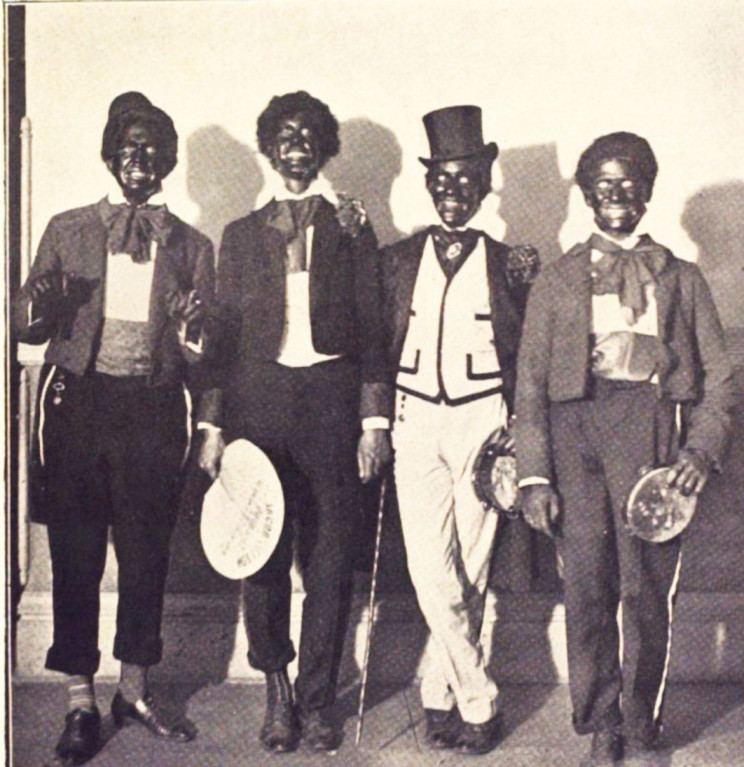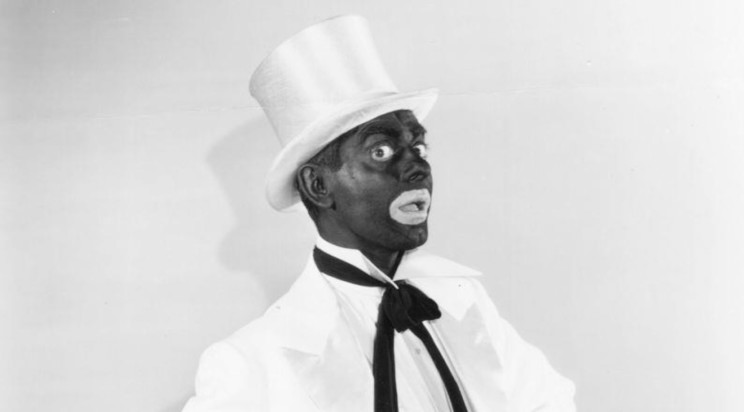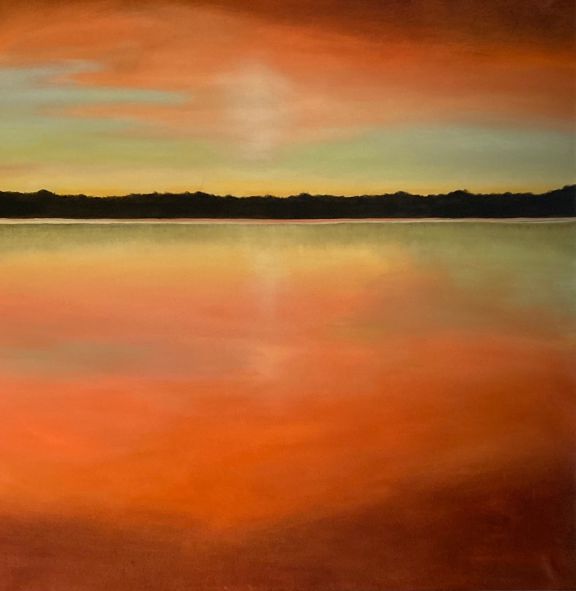THE YEAR WAS 1947
By Tom Lawrence

My friend Billy and I were walking home from school on a warm October afternoon in 1947. The aroma of burning leaves filled the air, and there was just the hint of a chill. We decided to take the long way home, detouring through downtown. We’d gone less than a block, when we saw the first brightly colored poster, wrapped around a light pole. The poster showed a black faced dandy playing a banjo, grinning from ear to ear. The figure wore a derby hat and spats on his shoes, and the poster announced:
COMING THIS WEEKEND!
THE SUgarf0ot Minstrels
SATURDAY NIGHT’S SHOW
WHITES 7:00
COLOREDS 9:00
MUSIC, DANCE AND COMEDY FOR ALL!!
We read the billboard with excitement! The minstrel shows were the only live entertainment that ever came to Ruleville, and they were anticipated by nearly everyone. Memphis hosted the Mid-South Fair and the Barnum & Bailey circus, Cleveland had the Bolivar County Fair, but we got the minstrels, and we loved them. If the minstrels were a baseball team, they would be playing in the show business Class D, but to two young boys, they were the only game in town.
Billy and I enjoyed a special place during minstrel week. The show rented the vacant lot next to my grandfather’s ice and coal business, and we were allowed to watch the tent as it was being set up, and to also mix with some of the performers. On Friday morning the Sugarfoot Minstrel traveling caravan pulled into town. There were trucks, a couple of old buses, and private cars and pick-up trucks pulling campers.
The manager, a black man wearing a derby hat, came over to the ice house and knocked on my grandfather’s office door. My grandfather stood as he came in, and then removed his own hat. They shook hands and my grandfather said,
“Well, Dan, it’s good to see you again. Looks like y’all are about to get set up.”
“Yes sir. We’ll have the tent up as soon as I can round up some help. You still okay with me hiring some of your hands?”
“Of Course. They always look forward to the extra pay and the free tickets. I’ll have my foreman, Crip round them up, and they’ll meet you on the lot. Do you want to park your vehicles inside my coal yard?”
“Yes sir, if you don’t mind. I like to get em off the street.”
“Well, fine. You know you can use our plant restrooms and showers, just like you always have.”
“I do, and it means a lot to our folks. Most places, we have to find a Negro church or school, but here we feel welcome.”
“I’ll send Crip and the boys over as soon as I find him, and they’ll get you all settled. Let me know if you need anything else.”
“Yes sir. We sure appreciate you and Miz Rainer.”
Billy and I followed Crip and the guys over to the lot, where we watched as they set up the tent. Once the tent was up and the stage was in place, they began to move in the chairs for the audience. When all was ready for the first show, all of the vehicles moved into our coal yard, with Billy and me following closely behind. This was my favorite part, because then we got to mingle with the performers.
Since the actual show, performed by an all-black ensemble, was considered “adult entertainment,” we would not be allowed to attend. Many of the performers knew I was Mr. Rainer’s grandson however, so we were welcomed by most everyone during rehearsal. We managed to view most of the upcoming show in the coal yard, where we gleefully watched the dancers, singers and comedians run through their acts, and no one chased us off.
All of the performers were in Blackface makeup, in spite of being black to begin with, which seemed to make it acceptable for a white person of the time to attend the show. The singers stuck to the standard vaudeville repertoire, with songs like I came from Alabama with a banjo on my knee, or Way down upon the Suwanee River. The dancers all did tap, and the comedians specialized in double entendre jokes, with sexual overtones — nothing smutty, but a bit suggestive.
Later, all of them would move backstage in the tent, and we were allowed to stay until just before the show started, but it wasn’t appropriate for two young lads to attend such a risqué function. Soon the tent began to fill with an all-white, mostly male crowd, and we were shooed out, and had to go back to the ice house. My grandparents didn’t go into the tent for the show either. They felt it was unseemly for a Christian white couple to mingle with the “riff-raff” who were in attendance. They, however, set up lawn chairs overlooking the tent, where they listened to every act.
After the first show ended, Billy and I took our blankets and returned to my grandparent’s apartment in the ice plant. My bedroom looked out over the lot, and if we cracked my window, we could hear the second show for the “colored people.” The black audience was much more participatory in their response to the show than the white audience had been, and we fell asleep to the lively music and laughter. When we woke up the next morning, the tent was coming down and the caravan was loading up to move on to Indianola for the next show. Ruleville’s annual dose of live entertainment had ended for yet another year.
The stereotypical practice of Blackface in theater began around 1830, with white performers creating a clichéd caricature of blacks, and by 1940, black entertainers began to see the economic value of it as well. The practice largely ended in the 1960s with the Civil Rights Movement, as both whites and blacks were furthering the belief that blacks were racially and socially inferior through the use of the mocking caricatures.

For more on Blackface Minstrels visit these sites connected to the images:
The header image is licensed under CC By 4.0 — linked to black-face.com
The first image is licensed under CC By 4.0 — linked to www.cs.pomona.edu
The second image is licensed under CC By 4.0 — linked to www.jezebel.com



bit-remember very well. In Indianola, they were held on Church Street. Della Brown, a black lady who worked for my mother would take me — 8 or 9 years old– to see the show. The stage was a wagon with a fold-out platform.
Brossie, thanks for the comments, are you kin to Phil?
Very interesting article. Humor was where you found it and it was a different time.
Jim, it certainly was a different time! There’s no business like show business.